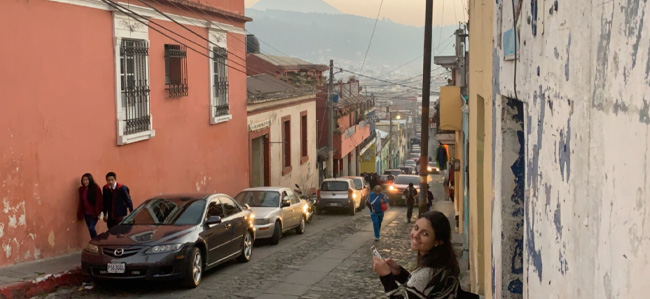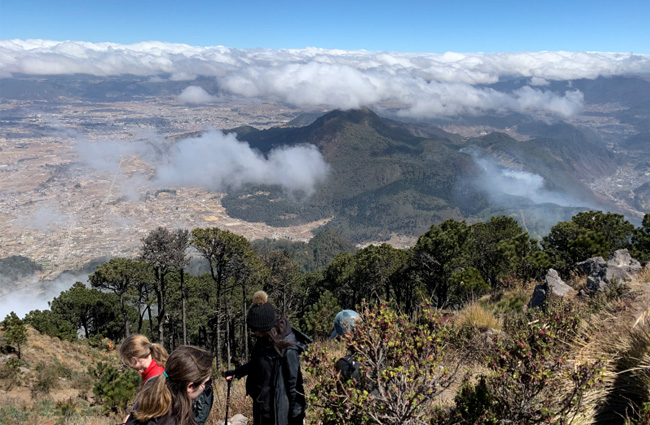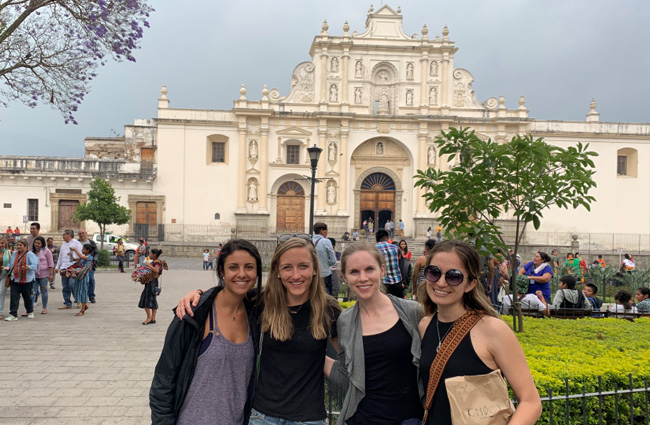Ayman Bodair

It was nearly sunset when I arrived at my destination, the city of Quezaltenango. We spent hours winding up and down the mountain ranges that surround the city, absorbing the sight of the different village communities and
people of Guatemala. I was very excited to contribute but initially was apprehensive to use Spanish in a medical capacity. That changed upon arriving at Pop Wuj that evening in Quetzaltenango. Like-minded medical students who were eager to
contribute and learn the language surrounded me, easing my fears. After arriving at the school, I was taken to meet my host mother, or abuelita. Every breakfast, lunch and dinner she patiently spoke with me about world events and Guatemalan culture. Even when I made mistakes, such as mispronouncing "despascito" and "desvestido," making it seem like I wanted to do the dishes without clothes on, she was lighthearted and jovial. However, most importantly she gave me an insight into the struggle and health discrepancies in Guatemala. She was trained as a physician, and was able to describe the poor access to health care that Guatemalans face, in addition to extreme poverty. Although she was a very skilled, intelligent woman, even she depended on the income from hosting students to keep herself afloat. I became very conscious of the deep cultural and structural problems all citizens faced.

I was able to see some of these disparities while at Pop Wuj. Every day I spent four hours one-on-one with my teacher Cici, speaking about the difficulties being a younger person in Guatemala. A single mom, she was closer to our
generation, yet still had experienced violence and muchismo, patriarchal culture that often affects women in Latin American countries. This manifested in the clinic where I worked every other day, taking care of women and children with various
primary care complaints. Many of the women worked tirelessly to take care of the household but received little health care in the process.
Despite some of the negatives, there was a lot of joy in the people and teachers at Pop Wuj. Building stoves for the Maya, salsa dancing, soccer games and hiking on beautiful landscapes were only a few of the amazing activities the people of Guatemala had to offer. I was sad to leave after weeks with my new family. However, they have left a lasting impression on me that I will hold onto when working in a health care environment here in the United States.

Back to Top